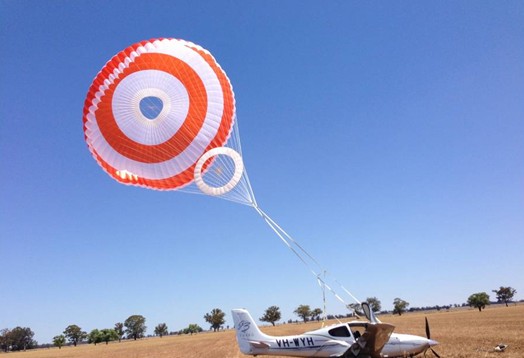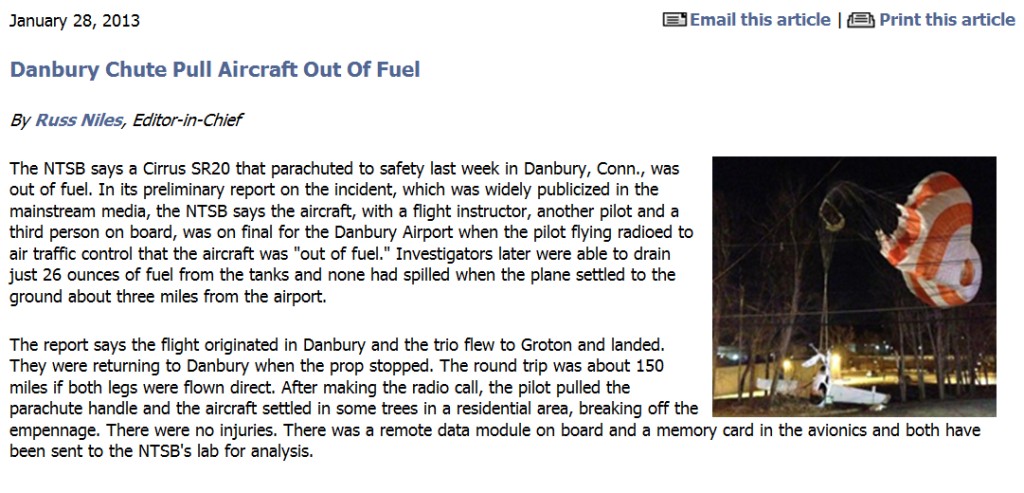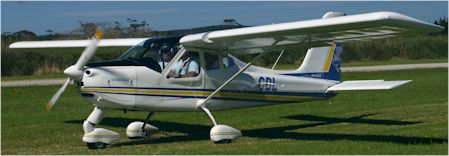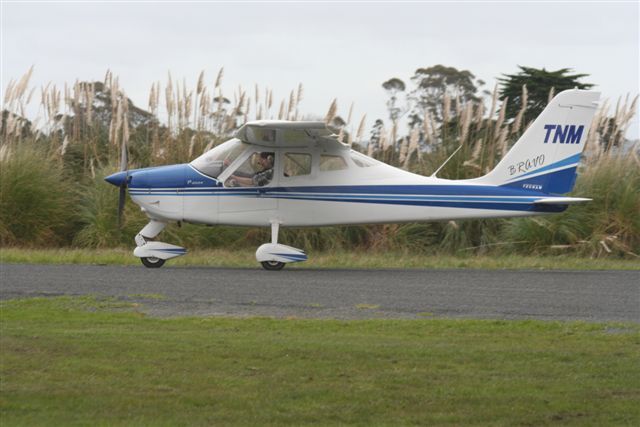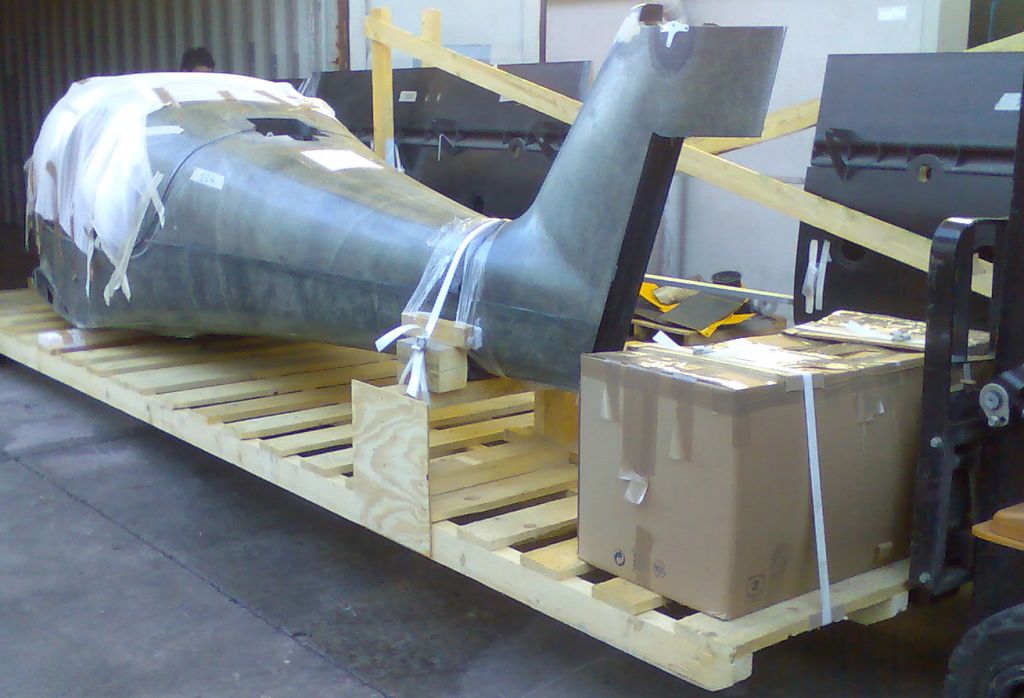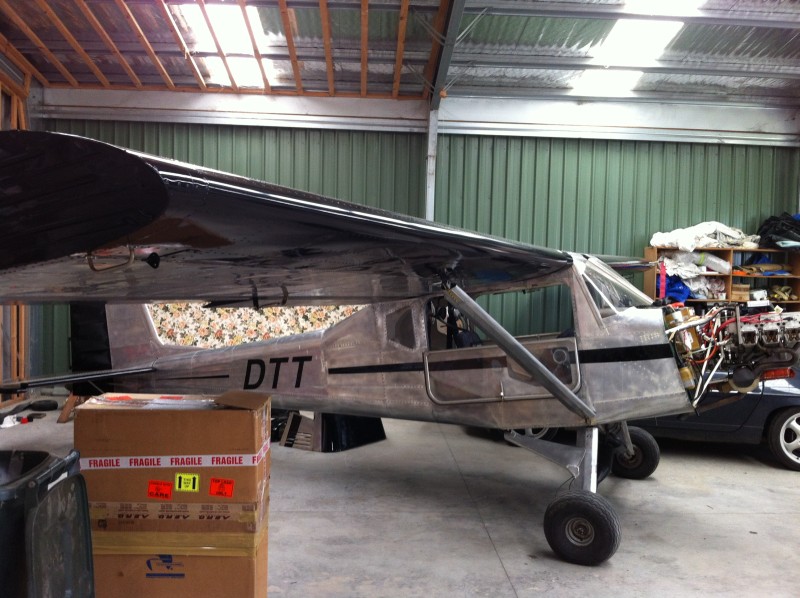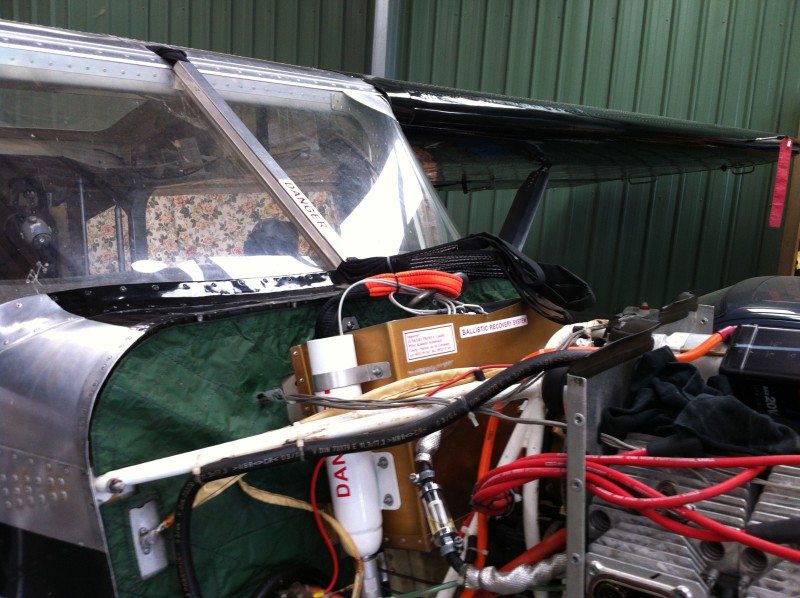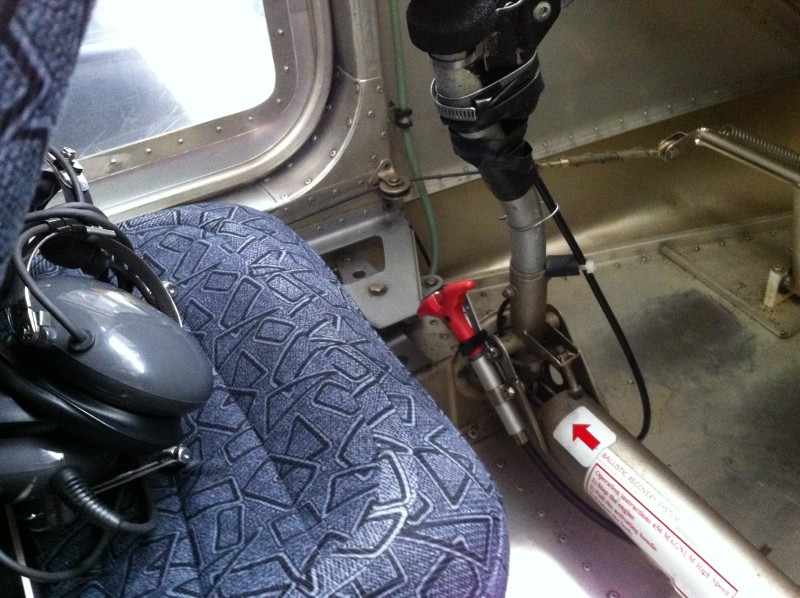
Some pilot's tales, and some typical Installations... Leading Edge Aviation Holdings Pty Ltd (Bryn Lockie, L.A.M.E and I.A.), are licensed aircraft maintenance engineers, factory trained and approved to install / service / repack Whole-Aircraft parachutes. Chief Engineer Bryn Lockie is Inspection Authorised (I.A.), and is able to certify Major Repairs/Modifications and Annual Reviews of Airworthiness (ARAs). Australia: Phone (02) 8355 7009. Email: info@LEAV8.com. Website: BRS Aviation Australia New Zealand: Phone (09) 973 5119. Email: info@LEAV8.com. Website: BRS New Zealand Other Southern Hemisphere: Phone Int + 2 8355 7009. Email: info@LEAV8.com. Website: Website: BRS Aviation Australia ------------------------------------------------------------------------------------------ BRS 'Whole aircraft' parachute deployed near Dubbo: Local paper report: "GOOD training and state-of-the-art equipment saved the lives of two Dubbo men who walked away from a light plane crash near Gilgandra. Pilot
John Nixon and passenger Tom Warren were standing next to the wreckage
of a Cirrus SR22-G3 single-engine, four-seater aircraft when rescue
responders arrived on the scene at Leeches Creek Road, 10km south
of Gilgandra, about 2.30pm on Wednesday. The
Cirrus aircraft - owned by a friend of Mr Nixon - is fitted with
a rocket-propelled (BRS) emergency parachute system capable of lowering
the entire aircraft and its occupants to the ground .... Asked if
he felt lucky, Mr Nixon's response was matter-of-fact: A good result, and the parachute even looks okay for repacking with a new rocket.
Local newspaper report: http://www.dailyliberal.com.au/story/1139644/plane-lucky-pilot-and-passenger-walk-away-from-crash/?cs=112 ------------------------------------------------------------------------------------------ 'Parachute on plane ... saved three lives'. Newspaper report from the USA. Cirrus aircraft are all fitted with BRS whole aircraft parachutes. ------------------------------------------------------------------------------------------ Engine failure on final over a built up area: Leaving aside that they ran out of gas, the pilot was faced with the very bad situation of engine failure on final over a built up area with trees and power lines, and no acceptable options for a forced landing. In the photo you can see that the chute is hung up on trees and the plane's tail is broken off, but "There were no injuries.". An excellent result in the circumstances.
Link to local newspaper: http://www.avweb.com/avwebbiz/news/Danbury_Chute_Fuel_208084-1.html ------------------------------------------------------------------------------------------
The Whole-Aircraft Parachute earned its keep... without being used: While
on the way to Great Barrier with a passenger in my DynAero, we were
enjoying the usual pleasant flight until, over
a few seconds, the engine note changed for no apparent reason. After
a few seconds running the engine up and down, and trying to convince
myself that I was imagining it, I realised that something really
had happened up front. Having had plenty of old cars in my youth,
I’m well familiar with the sound of a cracked exhaust pipe
and it sure sounded like that…. visions of hot gases blowing
onto rubber oil hoses in a tight engine room! So I did an immediate 180 turn, briefed the passenger, “The engine note has changed, it is probably nothing serious but we’ll get back on the ground to check it out”
and climbed slowly on reduced power.
When something unexpected happens, Murphy’s Law dictates that
one will have to choose between unattractive options… in this
case I had to decide whether to put on power and climb for height
(with hotter gases that would reach further), or stay on low power
and take a longer route round unlandable terrain between the aircraft
and the nearest airfield (more time for hot gases to work away at
something). However,
the aircraft has a ‘whole aircraft’ parachute which
gave me the option of staying on low power and flying straight to
the airfield, with the chute available for the last 500ft of descent
if I needed to get down quickly and didn’t like what was on
offer in the hilly area with many small paddocks and post-and-rail
fences. “... We’ll land at the nearby airfield which is close and should be no problem. But if it does happen that we need to put down before that we’ll land on a paddock, or if there is nowhere suitable I’ll pull the parachute and we’ll descend under that for the last bit. If we do have to put down, I’ll get you to take off your sunglasses, pull up your seat belt really tight, and brace your hands against the bottom of the instrument panel. But I’m not expecting any problems getting to the airfield...”
So, no worries. The 'chute well and truly earned its keep even without being used, by giving me an extra option… it provided me with a ‘Plan C’ when I didn’t like either ‘Plan A’ or ‘Plan B’. ------------------------------------------------------------------------------------------ SOME TYPICAL INSTALLATIONS: Zenair 701: Zenair 701
In this Zenair the deployment handle is mounted above the parcel shelf with the parachute and rocket at the rear. The Rocket fires out through a knock-out panel in the roof. ------------------------------------------------------------------------------------------ Cessna 172: Cessna 172 Close up of the installation. The parachute and rocket can be seen at the right rear of the luggage compartment, to fire up through the window. The tapes to the front wing mounts are under the central cover running up from the base of the window. Deployment handle mounted under the instrument panel. ------------------------------------------------------------------------------------------ Tecnam P92 Echo Super:
Tecnam P92 'Echo Super'
A strong pull on the 'Big Red Handle' deploys the parachute within 0.1 seconds.
The parachute is mounted in the back of the parcel shelf. When deployed, the rocket exits through the rear window pulling the 'chute from its bag. In this installation the rocket is in a guide tube as it is fitted close to the edge of the window. The tube also prevents anything accidently being stowed on top of the rocket. ------------------------------------------------------------------------------------------ DynAero MRC-01: In the DynAero aircraft there is a well for a whole-aircraft parachute built into the fuselage behind the cockpit. The tapes for the chute run from the front attachment points along the cockpit edge to the well.
The 'Big Red handle' under the instrument panel.
DynAero Fuselage just behind the canopy, with the knock-out panel. Tapes to the front attachment points are under the tear out strips up against the cockpit edge.
------------------------------------------------------------------------------------------
Tecnam Bravo:
Tecnam 'Bravo'
The 'Big Red Handle' below the instrument panel on the Tecnam 'Bravo'. The 'remove before flight' pin is normally removed as part of the pre-takeoff checks, and inserted during the shut-down checks.
Parachute and rocket are set down into the fuselage in the tail cone below the back of the parcel shelf. The Tapes leading to the wing attachment points are wrapped at the back of the shelf and lead up to through a sealed slot in the knock out panel inserted into the back window.
From the outside, the tapes run up under the covers to wing spar bolts for a very strong attachment point. The knock out panel is attached with sealer only and will not offer resistance to the rocket and chute deploying. ------------------------------------------------------------------------------------------
DynAero '4s':
A DynAero '4s' kitset. The well behind the cockpit is ready for a whole-aircraft parachute to be fitted. The groove leading down from the well and forward under the canopy is ready for the tapes to be run to the front attachment points, with tear-off covers. ------------------------------------------------------------------------------------------ WT-01
Klassik: There are many places to mount a whole-aircraft
parachute, depending on space and weight-and-balance considerations.
In the 'Klassik' the chute is on the firewall in the engine compartment
and deploys up through a knock out panel in the engine cover. The
'Big Red Handle' is pulled up from the floor in front of the pilot's
seat.
DTT with whole-aircraft chute mounted on firewall
Close up of whole-aircraft chute on firewall, fires up through a knock out panel. Rocket in 'danger' tube.
DTT. 'Big red Handle' is mounted on the floor and pulled upwards to activate chute
|
